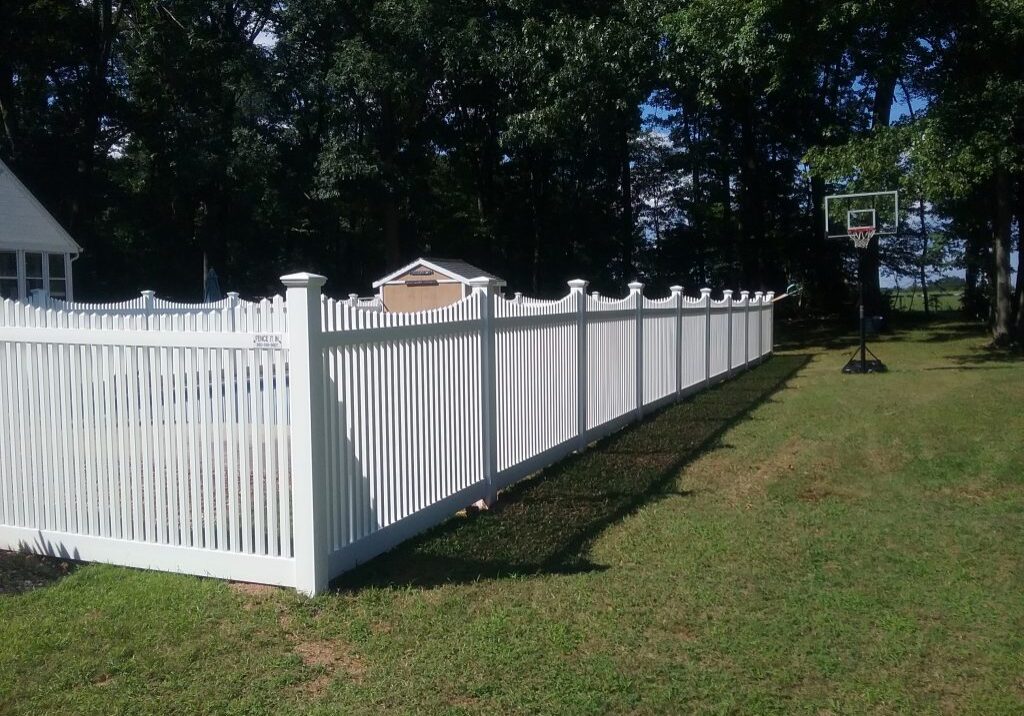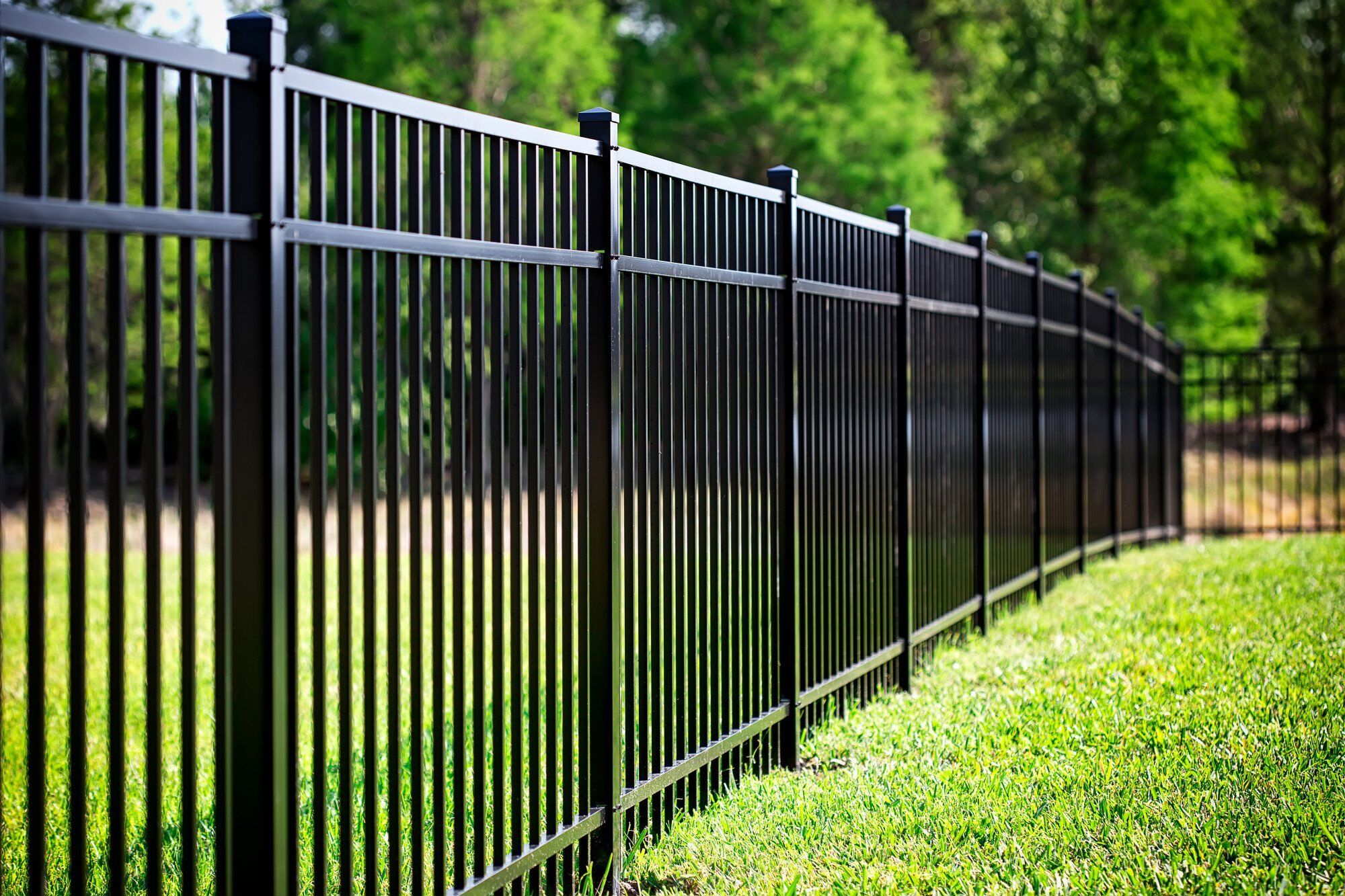All Categories
Featured
Installing a fence on your property can include privacy, safety and security, and visual allure, but prior to you start digging openings and setting blog posts, it's essential to comprehend whether you require a license. Not obtaining the necessary permits can result in fines or the demand to get rid of the fence.
Why Are Allows Essential for Fence Installation? Permits are very important for making sure that your fencing abides by local zoning legislations and structure codes. These laws assist make sure the safety of your building and the surrounding area. Additionally, allows prevent conflicts with neighbors or neighborhood authorities, especially when it concerns residential or commercial property lines, height constraints, and total design.
Oftentimes, regional authorities require licenses to manage points like presence at crossways or the proximity of a fence to public rooms like walkways or roadways. Authorizations also assist make sure that fencings are installed appropriately and safely, particularly when it involves high fencings or one-of-a-kind materials.
Typical Sorts Of Licenses for Fence Installation. The type of fence you intend to install and your area will identify which authorizations are required. Right here are one of the most usual kinds:
Building Permit. A building permit is typically needed for fences that exceed certain height limits (usually above 6 feet), lie near a public road or walkway, or are made from details materials. Structure permits ensure that the framework fulfills neighborhood building ordinance, including safety and security criteria.
Zoning License. Zoning authorizations are typically called for to make certain that your fence adheres to regional zoning regulations. Zoning legislations can specify where a fencing can be positioned on your home (e.g., along residential property lines or ahead lawns), in addition to set limits on fencing elevation. These laws are developed to avoid blockages that might affect traffic safety or community aesthetics.
![]()
Trouble Permit. In some locations, you might need a trouble permit to position your fence a particular range from residential property lines, roads, or energies. Obstacles are meant to preserve correct room in between frameworks and building boundaries, decreasing possible conflicts with neighbors or public infrastructure.
Homeowners Organization (HOA) Approval. You will likely require approval from the HOA prior to installing a fencing if your home is component of a community governed by a Homeowners Organization (HOA) HOA guidelines often regulate the style, elevation, materials, and even shade of fencings, making sure that they match the overall visual of the community.
The Refine for Acquiring a Fence License. To acquire a fencing license, you usually require to call your local city or region office. Many areas have a structure department or planning workplace where you can apply for permits. The procedure involves completing an application and giving thorough info about your suggested fence, including:
Fence layout (products, height, style) Area on the residential property. Building line information (for accurate positioning) Oftentimes, a site plan showing the suggested fencing's setting will certainly be needed. You may also need to pay a permit cost, which can vary based on area and the intricacy of the task.
Once you submit your application, the neighborhood authorities will certainly evaluate it to make certain the fencing abides by regional guidelines. Depending on your area, you might likewise need to enable or arrange an evaluation for a property survey.
When Do You Not Need a Permit? Sometimes, a license may not be required. Typically, you might not need a permit if:
![]()
The fence is under a certain height (commonly 3-4 feet for front backyards) You're replacing an existing fence with the exact same kind and elevation. The fence is short-lived (such as a garden fence) It's always a great idea to inspect with your regional building or zoning department to validate the needs, as policies can differ.
Repercussions of Not Getting a Permit. In some cases, you might require to re-install the fence according to code, which might be pricey and time-consuming. Furthermore, not complying with the proper allowing procedure can develop issues with next-door neighbors, especially if your fence prolongs past your residential property line or doesn't meet height or design requirements.
Conclusion. Before mounting a fencing, make sure you recognize the local laws and whether you require an authorization. It is necessary to contact your neighborhood building or zoning office, as well as your HOA if applicable, to understand what's required. By getting the proper authorizations, you'll make certain that your fence is legitimately compliant, safe, and without future complications. Taking this added action will certainly conserve you time and money in the lengthy run while supplying satisfaction that your task is on the right track.
Why Are Allows Essential for Fence Installation? Permits are very important for making sure that your fencing abides by local zoning legislations and structure codes. These laws assist make sure the safety of your building and the surrounding area. Additionally, allows prevent conflicts with neighbors or neighborhood authorities, especially when it concerns residential or commercial property lines, height constraints, and total design.
Oftentimes, regional authorities require licenses to manage points like presence at crossways or the proximity of a fence to public rooms like walkways or roadways. Authorizations also assist make sure that fencings are installed appropriately and safely, particularly when it involves high fencings or one-of-a-kind materials.
Typical Sorts Of Licenses for Fence Installation. The type of fence you intend to install and your area will identify which authorizations are required. Right here are one of the most usual kinds:
Building Permit. A building permit is typically needed for fences that exceed certain height limits (usually above 6 feet), lie near a public road or walkway, or are made from details materials. Structure permits ensure that the framework fulfills neighborhood building ordinance, including safety and security criteria.
Zoning License. Zoning authorizations are typically called for to make certain that your fence adheres to regional zoning regulations. Zoning legislations can specify where a fencing can be positioned on your home (e.g., along residential property lines or ahead lawns), in addition to set limits on fencing elevation. These laws are developed to avoid blockages that might affect traffic safety or community aesthetics.

Trouble Permit. In some locations, you might need a trouble permit to position your fence a particular range from residential property lines, roads, or energies. Obstacles are meant to preserve correct room in between frameworks and building boundaries, decreasing possible conflicts with neighbors or public infrastructure.
Homeowners Organization (HOA) Approval. You will likely require approval from the HOA prior to installing a fencing if your home is component of a community governed by a Homeowners Organization (HOA) HOA guidelines often regulate the style, elevation, materials, and even shade of fencings, making sure that they match the overall visual of the community.
The Refine for Acquiring a Fence License. To acquire a fencing license, you usually require to call your local city or region office. Many areas have a structure department or planning workplace where you can apply for permits. The procedure involves completing an application and giving thorough info about your suggested fence, including:
Fence layout (products, height, style) Area on the residential property. Building line information (for accurate positioning) Oftentimes, a site plan showing the suggested fencing's setting will certainly be needed. You may also need to pay a permit cost, which can vary based on area and the intricacy of the task.
Once you submit your application, the neighborhood authorities will certainly evaluate it to make certain the fencing abides by regional guidelines. Depending on your area, you might likewise need to enable or arrange an evaluation for a property survey.
When Do You Not Need a Permit? Sometimes, a license may not be required. Typically, you might not need a permit if:

The fence is under a certain height (commonly 3-4 feet for front backyards) You're replacing an existing fence with the exact same kind and elevation. The fence is short-lived (such as a garden fence) It's always a great idea to inspect with your regional building or zoning department to validate the needs, as policies can differ.
Repercussions of Not Getting a Permit. In some cases, you might require to re-install the fence according to code, which might be pricey and time-consuming. Furthermore, not complying with the proper allowing procedure can develop issues with next-door neighbors, especially if your fence prolongs past your residential property line or doesn't meet height or design requirements.
Conclusion. Before mounting a fencing, make sure you recognize the local laws and whether you require an authorization. It is necessary to contact your neighborhood building or zoning office, as well as your HOA if applicable, to understand what's required. By getting the proper authorizations, you'll make certain that your fence is legitimately compliant, safe, and without future complications. Taking this added action will certainly conserve you time and money in the lengthy run while supplying satisfaction that your task is on the right track.
Latest Posts
Cost-Effective Car Services: Top-Quality Repairs at a Great Price
Published Apr 21, 25
2 min read
Roofing Substitute Overview: What to Get out of Beginning to End Up
Published Apr 21, 25
2 min read
Discovering the Benefits of WyHy Share Interest-bearing Account
Published Apr 19, 25
1 min read
More
Latest Posts
Cost-Effective Car Services: Top-Quality Repairs at a Great Price
Published Apr 21, 25
2 min read
Roofing Substitute Overview: What to Get out of Beginning to End Up
Published Apr 21, 25
2 min read
Discovering the Benefits of WyHy Share Interest-bearing Account
Published Apr 19, 25
1 min read